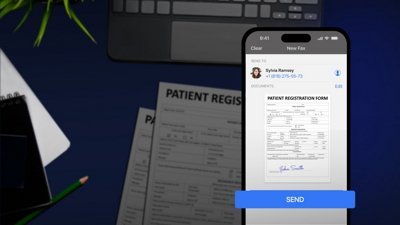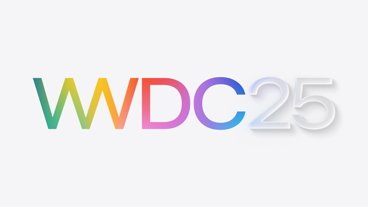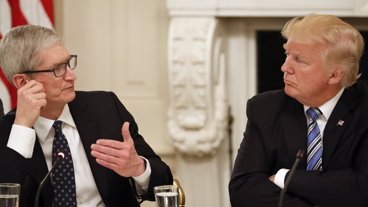Some iCloud users are having trouble syncing with iCloud Drive, Photos, and backup upload after updating to iOS 16.3, and it all seems related to a lack of two-factor authentication.
In posts to Apple's support forums and to Reddit, as well as for one reader who contacted AppleInsider, it seems there is an issue for some users trying to interact with iCloud. The instances follow the update to iOS 16.3 which made security changes to enable physical security keys to be used to secure accounts, as well as expanding Advanced Data Protection outside of the U.S.
The reports by users explain that they see a message reading "An Unexpected Error Occurred. Please try again later" after trying to enable previously active and functional features, that have been turned off post-update. These features include iCloud Drive and iCloud Backup, among others.
A common thread throughout user reports is that two-factor authentication isn't enabled in most cases. In some instances, follow-up reports indicate that enabling two-factor authentication to the Apple ID can be a workaround, but not everyone wishes to enable that security feature on their account.
There are also a few reports where users are having the same issue but already have two-factor authentication enabled, so there is a possibility that it may be due to something else.
According to Apple's iCloud data security overview, "All new Apple IDs require two-factor authentication" to be enabled on an account, and that it is also required for various other ecosystem features, such as end-to-end encryption.
Apple rolled out Advanced Data Protection in the U.S. in December 2022, which adds end-to-end encryption to iCloud Drive, device and Messages backups, Photos, and other elements. The feature was expanded to other countries on January 23.
It also appears that some users have attempted to get help from Apple's support, and it seems Apple is aware that there is something happening with the system.
 Malcolm Owen
Malcolm Owen







 Wesley Hilliard
Wesley Hilliard

 Oliver Haslam
Oliver Haslam
 Christine McKee
Christine McKee
 Amber Neely
Amber Neely
 Andrew Orr
Andrew Orr

 Sponsored Content
Sponsored Content







5 Comments
I know people don't like the hassle of 2FA, but it is absolutely vital to protect the integrity of your accounts. Passkeys, which are based on biometric authentication, can't get here soon enough -- but in the meantime, it looks like Apple is going to pretty much bring the hammer down soon on people who haven't yet enabled 2FA.
Every time I switch iPhone, the nightmare of Authentication begins. Whether it's 2FA or using proprietary Authenticator Apps from Microsoft, Google and 1Password, they will drive my head spinning non-stop for hours before the dust is settled. It's all in the name of preventing accounts from being hacked.
This is a bug. Apple needs to fix it.
Regardless of whether enabling 2FA happens to provide a workaround for this bug in some cases, or what your personal thoughts on 2FA, Apple absolutely needs to fix this bug in a way that does not require users who don't want to use 2FA to use it.
A bug is a bug is a bug. Anecdotal workarounds are good information to pass along to the dev team to help them isolate then bug, but these are not fixes, at least not outside of the world of voodoo based software development.
Apple could make 2FA a requirement. If they decided to do so they would certainly issue several notifications well in advance of rolling it out to their user base.
I'm 100% in favor of tightening down security as much as possible. Multi-factor authentication is a pretty good additional layer of protection, as are hardware keys. But I'm not going to be the first one to try a new security method. I'll wait until it's been proven and independently verified and I fully understand the limitations. I need to always know that I have a fail-proof and foolproof way to get everything back should something bad happen in the security implementation or due to my ignorance.
Security is kind of like having a 4-wheel drive vehicle - it allows you to get stuck in places where virtually nobody can get you unstuck. I can't really think of too many risks with 2FA/MFA other than you not having access to the verification device/key when and where you are challenged. But some of the latest security features being rolled out by Apple and Microsoft (and likely others) are starting to tighten down the screws to the point where turning them on impacts your ability to use some of your devices at all.
One prime example is Windows 11 and its requirement for TPM 2.0. In a similar manner, using Microsoft Defender on Mac requires Big Sur or later. It'll tell you that you need to update your Mac's OS to use it, but if you have an older Mac, an update may not be possible. On the Mac the Advanced Data Protection requires all of your devices using iCloud to be at a certain OS version to turn on the feature. Some devices may need to be left behind but some device owners aren't ready to do so, even if the newer technology makes perfect sense.